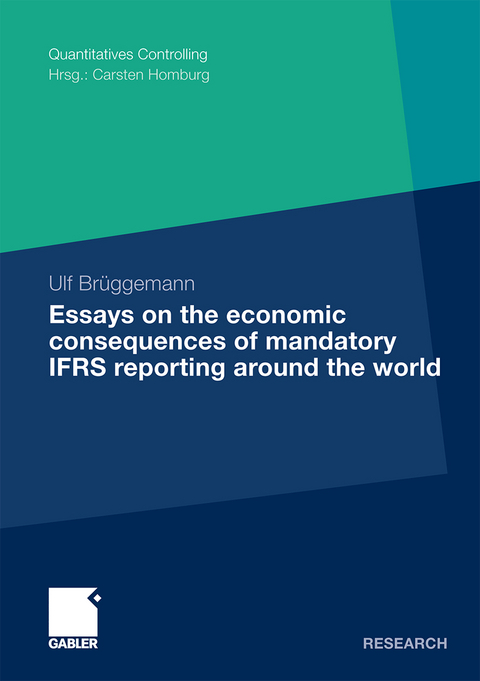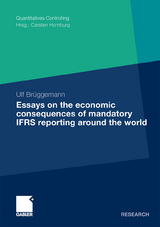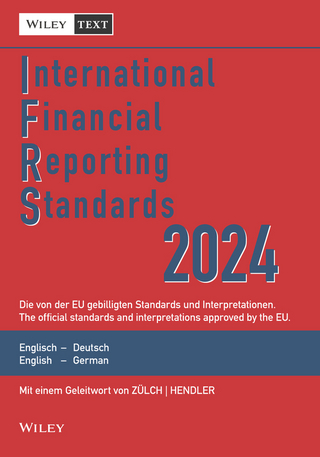Essays on the Economic Consequences of Mandatory IFRS Reporting around the world
Seiten
2011
|
2011
Betriebswirtschaftlicher Verlag Gabler
978-3-8349-3169-6 (ISBN)
Betriebswirtschaftlicher Verlag Gabler
978-3-8349-3169-6 (ISBN)
Ulf Brüggemann discusses and empirically investigates the economic consequences of mandatory switch to IFRS. He provides evidence that cross-border investments by individual investors increased following the introduction of IFRS.
Many listed companies around the world are required to prepare their consolidated accounts according to International Financial Reporting Standards (IFRS) since fiscal year 2005. Ulf Brüggemann discusses and empirically investigates the economic consequences of this mandatory switch to IFRS. He provides evidence that cross-border investments by individual investors increased following the introduction of IFRS. However, he also finds that uneven implementation of IFRS and its impact on contractual outcomes whose features vary substantially across countries are likely to dampen the benefits of uniform accounting standards. Taken together, his analysis shows that mandatory IFRS reporting has the potential to produce both intended and unintended consequences.
Many listed companies around the world are required to prepare their consolidated accounts according to International Financial Reporting Standards (IFRS) since fiscal year 2005. Ulf Brüggemann discusses and empirically investigates the economic consequences of this mandatory switch to IFRS. He provides evidence that cross-border investments by individual investors increased following the introduction of IFRS. However, he also finds that uneven implementation of IFRS and its impact on contractual outcomes whose features vary substantially across countries are likely to dampen the benefits of uniform accounting standards. Taken together, his analysis shows that mandatory IFRS reporting has the potential to produce both intended and unintended consequences.
Dr. Ulf Brüggemann received his doctoral degree from the University of Cologne under the supervision of Prof. Dr. Carsten Homburg (Department of Business Administration and Management Accounting).
Aus dem Inhalt:
Intended and Unintended Consequences of Mandatory IFRS Adoption; Mandatory IFRS Adoption and Cross-border Investments by Individual Investors; Economic Consequences Fair Value Reclassifications under IFRS
| Erscheint lt. Verlag | 31.8.2011 |
|---|---|
| Reihe/Serie | Quantitatives Controlling |
| Zusatzinfo | XIV, 151 p. |
| Verlagsort | Wiesbaden |
| Sprache | englisch |
| Maße | 148 x 210 mm |
| Gewicht | 228 g |
| Themenwelt | Wirtschaft ► Betriebswirtschaft / Management ► Rechnungswesen / Bilanzen |
| Schlagworte | Fair value accounting • IAS 39 • IFRS (International Financial Reporting Standards) • Individual investors • International Accounting • International Financial Reporting Standards |
| ISBN-10 | 3-8349-3169-1 / 3834931691 |
| ISBN-13 | 978-3-8349-3169-6 / 9783834931696 |
| Zustand | Neuware |
| Haben Sie eine Frage zum Produkt? |
Mehr entdecken
aus dem Bereich
aus dem Bereich
Buch | Softcover (2024)
Wiley-VCH (Verlag)
32,99 €
Grundlagen der Buchführung für Industrie- und Handelsbetriebe
Buch (2024)
Springer Gabler (Verlag)
28,00 €




